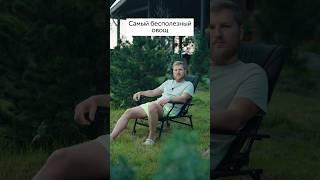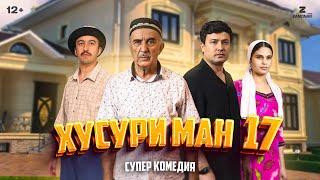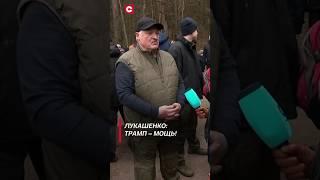
Opera exam Festival, SITCOM
SITCOM
American TV series, episode 126 (Based on works by Rossini)
Rossini: La Scala di Seta
Lucilla: Lusine Sahakyan ( The Boss of Model agency )
Giulia: Tatai Nóra/ Vida Anikó/ Jőrös Andrea( Lucilla's niece)
Dorvil: You Zuo ( Giulias's love, photographer)
Dormont: Kristofori Ferenc ( Isabella's love)
Blansac: Erdős Attila( Model)
Germano: Gaál Csaba( Lucilla's assistant)
Rossini: L'italiana in algeri
Musztafa: Ambrus Ákos (Millionaire)
Isabella: Ruszo Alexandra( Lucilla's Model)
Elvira: Jánoshegyi Anna( Musztafa's wife)
Rossini: Il viaggio a Reims
Corinna: Sárközi Xenia( Lucilla's Model)
Belfiore(tenor): Csoka Anita(Journalist)
Director: András Almási-Tóth
Conductor: Christian Schumann
Concerto Budapest
Music assistants: Mónika Baja, Szabolcs Sándor
Set design, costumes: Sára Szalai
Choreographer: Eszter Lázár
Sitcom – ‘situation comedy’ – is generally applied to a series where the figures (colleagues, friends, family) spend their time in a common space (workplace, home, café) and get tangled Sitcom – ‘situation comedy’ – is generally applied to a series where the figures (colleagues, friends, family) spend their time in a common space (workplace, home, café) and get tangled up in a variety of largely comic situations. They are typically recorded in front of a live audience in order to leverage their reactions (laughter, applause, etc.). In the 18th and 19th centuries vaudeville was the musical stage equivalent; from the 20th century first radio and then television took over the genre, working with identical characters and situations changing from episode to episode but always concluding with a ‘happy ending’. The half-term opera exam at the Liszt Academy weaves three operas by Rossini – La Scala di Seta (The Silk Ladder), L’Italiana in Algeri (An Italian Woman in Algiers) and Il Viaggio a Reims (The Journey to Reims) – into a single-series episode where misunderstandings in love lead to the great reconciliation, just so that the strands can once be tangled up in time for the next part.
2015, Budapest
American TV series, episode 126 (Based on works by Rossini)
Rossini: La Scala di Seta
Lucilla: Lusine Sahakyan ( The Boss of Model agency )
Giulia: Tatai Nóra/ Vida Anikó/ Jőrös Andrea( Lucilla's niece)
Dorvil: You Zuo ( Giulias's love, photographer)
Dormont: Kristofori Ferenc ( Isabella's love)
Blansac: Erdős Attila( Model)
Germano: Gaál Csaba( Lucilla's assistant)
Rossini: L'italiana in algeri
Musztafa: Ambrus Ákos (Millionaire)
Isabella: Ruszo Alexandra( Lucilla's Model)
Elvira: Jánoshegyi Anna( Musztafa's wife)
Rossini: Il viaggio a Reims
Corinna: Sárközi Xenia( Lucilla's Model)
Belfiore(tenor): Csoka Anita(Journalist)
Director: András Almási-Tóth
Conductor: Christian Schumann
Concerto Budapest
Music assistants: Mónika Baja, Szabolcs Sándor
Set design, costumes: Sára Szalai
Choreographer: Eszter Lázár
Sitcom – ‘situation comedy’ – is generally applied to a series where the figures (colleagues, friends, family) spend their time in a common space (workplace, home, café) and get tangled Sitcom – ‘situation comedy’ – is generally applied to a series where the figures (colleagues, friends, family) spend their time in a common space (workplace, home, café) and get tangled up in a variety of largely comic situations. They are typically recorded in front of a live audience in order to leverage their reactions (laughter, applause, etc.). In the 18th and 19th centuries vaudeville was the musical stage equivalent; from the 20th century first radio and then television took over the genre, working with identical characters and situations changing from episode to episode but always concluding with a ‘happy ending’. The half-term opera exam at the Liszt Academy weaves three operas by Rossini – La Scala di Seta (The Silk Ladder), L’Italiana in Algeri (An Italian Woman in Algiers) and Il Viaggio a Reims (The Journey to Reims) – into a single-series episode where misunderstandings in love lead to the great reconciliation, just so that the strands can once be tangled up in time for the next part.
2015, Budapest
Комментарии:
Opera exam Festival, SITCOM
Sgdre Sdrg
Kartoffelsalat (richtig lecker - immer gut)
letitcook - Kochkanal
Are You Anchoring Wrong?
Born Again Boating
Poseł Marcin Gwóźdź o szczepieniach i drodze S8
TV DAMI Region
박향림 - 흘러간 목가 (1938)
Hyunseung Park (Korean Jazzy Blues)
Nifty & Bank Nifty Analysis || Sp Singh ||#nifty #banknifty #spsingh
Elliott Wave Institute
Verbs +to infinitive/ Verbs +-ing I English Grammar Test A1
Basic English Grammar Quiz 1124
OSCAR ( KRZ BUDOTS )
Dj KRZ Official


























